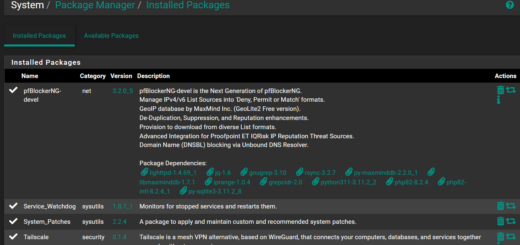Safeguarding Your Digital Oasis: The Importance of Network Segmentation and Robust Security
Title: Safeguarding Your Digital Oasis: The Importance of Network Segmentation and Robust Security
Introduction
In our interconnected world, the proliferation of Internet of Things (IoT) devices and the need for guest access has become increasingly common. However, the convenience comes with potential security risks that should not be ignored. In this blog post, we will emphasize the critical importance of separating IoT devices from your private network, implementing robust security measures, and maintaining up-to-date systems to create a secure digital oasis for your home or business.
- The Significance of Network Segmentation
Isolating IoT devices from your private network is a fundamental security practice. IoT devices often have vulnerabilities, and if compromised, they can become a gateway for hackers to access your personal data and network. By creating a separate network for these devices, you mitigate the risk of unauthorized access and protect your sensitive information.
- Implementing Robust Security Measures
Having a strong and well-configured firewall is paramount to safeguarding your network. A firewall acts as a gatekeeper, monitoring and controlling incoming and outgoing traffic, preventing malicious entities from gaining entry to your network. Additionally, utilizing intrusion detection and prevention systems (IDPS) adds an extra layer of security, alerting you to potential threats in real-time.
- Securing Guest Access
Offering guest Wi-Fi access is a common courtesy, but it should never jeopardize your private network’s security. It is essential to create a separate guest network with strong encryption and a unique password. Restricting guest access to the internet only ensures that their devices are isolated from your private network, safeguarding your data and devices from unauthorized access.
- Keeping Systems Up-to-Date
Maintaining regular updates for your computers, router, and firewall is a crucial practice in network security. Software developers frequently release updates to address security vulnerabilities and enhance performance. By staying current with these updates, you minimize the risk of potential exploits and ensure your network remains robust against emerging threats.
- Strengthening Wi-Fi Security
Securing your Wi-Fi access point is vital to prevent unauthorized access to your network. Enable WPA3 encryption, which offers the highest level of Wi-Fi security available, and use a strong, unique password that combines uppercase and lowercase letters, numbers, and special characters. Regularly change your Wi-Fi password to further enhance security.
- Guest Network Isolation
To ensure guest privacy and protect your network from any misconfigurations, enable client isolation on your guest network. This feature prevents devices connected to the guest network from communicating with each other, limiting their access to the internet only.
Conclusion
As technology becomes an integral part of our lives, ensuring the security of our networks is of utmost importance. By implementing network segmentation to separate IoT devices from the private network, creating strong security measures with up-to-date systems, and securing guest access, you create a fortress of protection for your digital oasis.
Remember, safeguarding your network is an ongoing process. Continuously update your systems, maintain robust security measures, and educate yourself on emerging threats. With these practices in place, you can confidently enjoy the benefits of technology while protecting your personal data and ensuring a safe digital environment for yourself and your guests.









